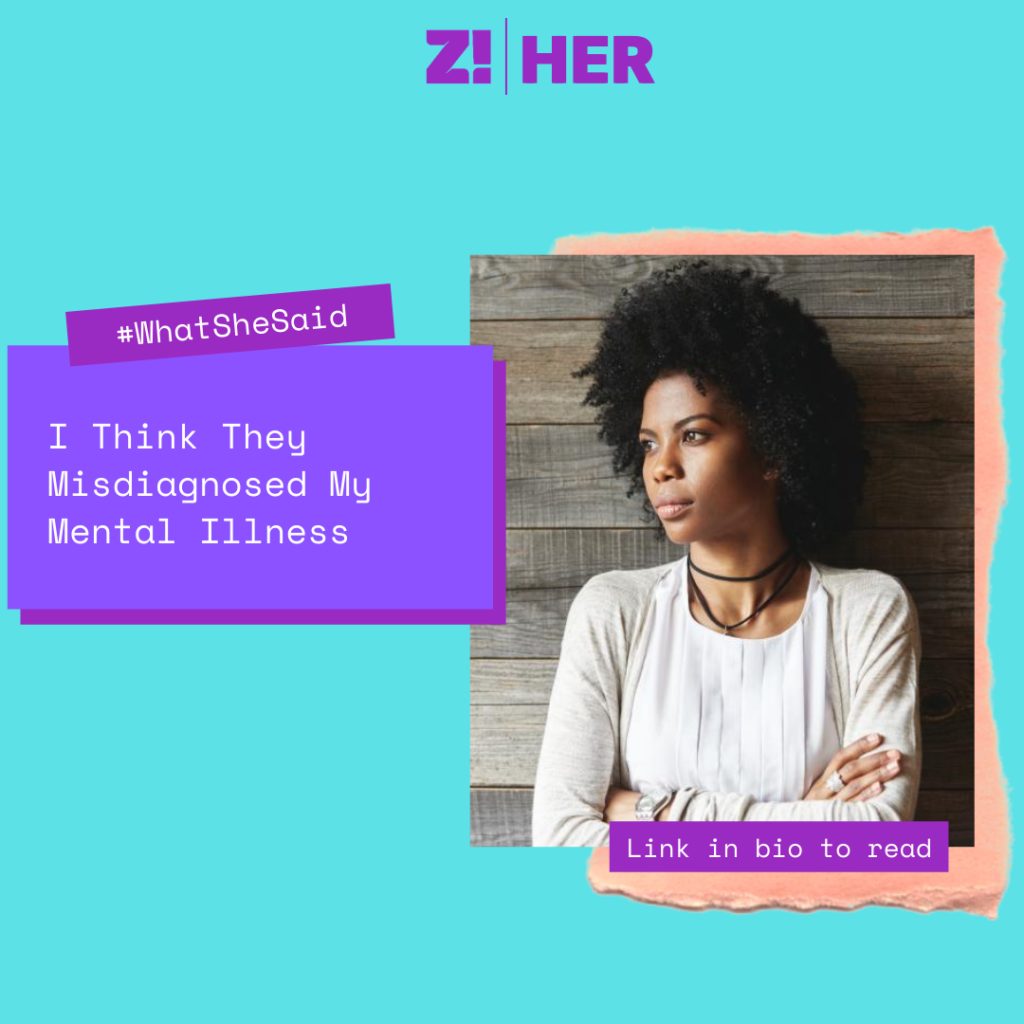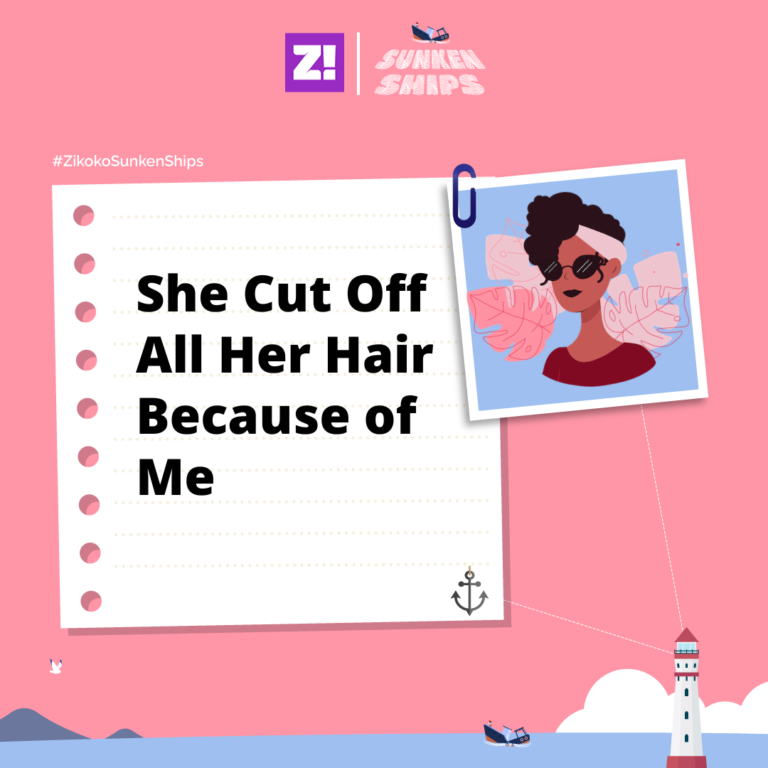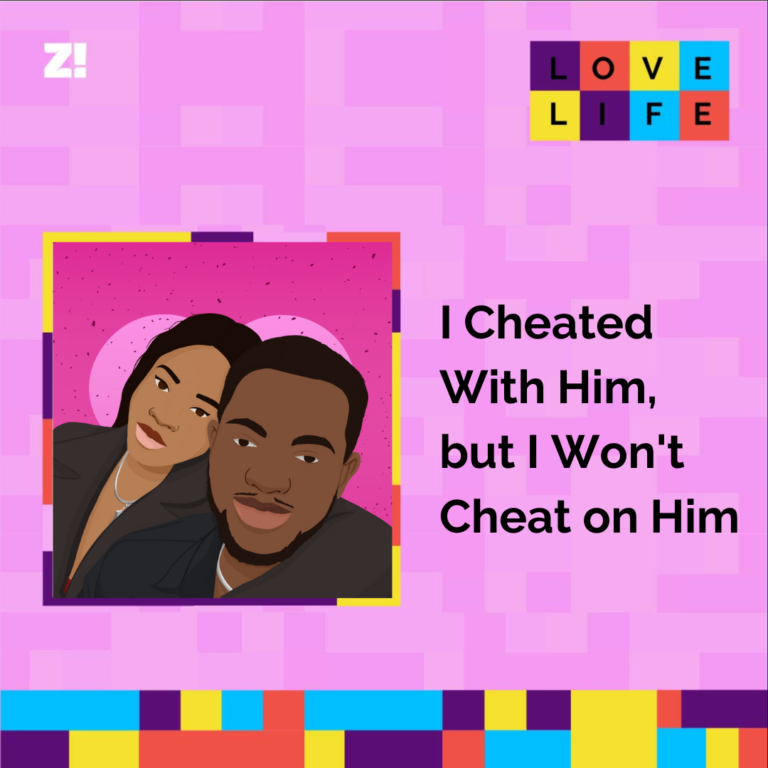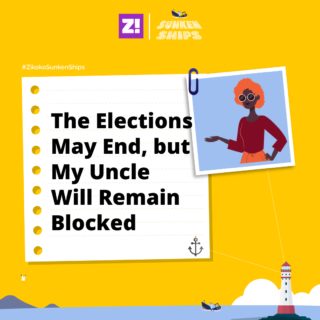
The subject of this week’s What She Said is a Nigerian woman in her early twenties who was diagnosed with bipolar disorder. She talks about her mental health journey in Nigeria, and why she thinks she was misdiagnosed.
What’s your earliest memory of your childhood?
The earliest memory I can recall is being molested by my uncle. I have no memory of anything before the age of eight, and I think that’s my brain trying to suppress the trauma from the assault and my parents neglecting me as a child. I lost my memories after the assault, and I only started recovering them again as an adult, but in fragments.
I’m so sorry that happened. Did your parents ever find out?
My parents eventually found out about it when I was nine or ten. I think they walked in while he was trying to molest me, but I don’t really remember. I just remember the aftermath and the questions they asked. He had to leave the house, but he was welcomed back so many times over the years. When they asked me what really happened, I was unable to tell the full story and had to lie that he only attempted to molest me.
I lied because my parents were hysterical, and I was scared. My mum wouldn’t stop crying and calling me ruined. This was the first time I ever saw people so hysterical, so I thought I had to protect them. I was a child, I didn’t even know what protecting my parents meant. I just knew I did not want my mother to be so hysterical.
Would you say your mother reacted strongly?
My mum was always an emotional person, so I witnessed a lot of her breakdowns and anger in a very extreme manner. When she got angry at me, she would call me names or hit me. Her moods were chaotic, so I never knew what to expect.
I think it affected my mood regulation, and showed me extreme expressions of anger, such as breaking things, saying horrible things and overall frantic efforts to avoid abandonment to be socially acceptable. Honestly, I believe she actually had some mental issues as well, but she never got any help. In fact, when she found out I tried to kill myself when I was 16, she opted to pray for me instead of actually helping me access help. My parents believe in faith therapy.
Did you tell your parents about the suicide attempt?
I did not tell anyone I tried to kill myself, so there was nobody to urge me to get help. My mother only found out because she read my diary, but she never confronted me about it. My parents do not talk about or confront things that make them uncomfortable.
Then I was diagnosed with bipolar disorder type II in 2016 when I was 18. A friend of mine who had been my support system at the time encouraged me to get one because of my behaviour. I always knew I was not like the average person so getting the diagnosis made me feel validated. Like I was not imagining it.
I am so glad you were able to get a diagnosis. Did they put you on any medication?
Yes. After I was diagnosed, I was put on medication, but I stopped after a year. The medication did more harm than good. It did help sometimes, but it also made me fatter and sicker. There were headaches, diarrhoea, nausea, and sexual problems like dryness and being unable to cum. Now, I’m relatively untreated. It’s difficult because I have episodes three to five times a day.
What’s an episode like for you?
A memory from years ago can resurface in my mind and trigger an episode. I can then spend the next two hours crying and having anxiety attacks about this memory. My mind tells me that I am a horrible and stupid person that is undeserving of love. I start to remember all the people who have left me and I feel unloveable. On more intense days, the voices in my head may tell me to cut myself.
On a more extreme day, I burned myself as punishment for being a horrible person to someone I loved when, in fact, I just couldn’t see that these were efforts to avoid abandonment by him.
And these are just normal for people with bipolar disorder?
Technically, I don’t think I have bipolar disorder. I think I have BPD — borderline personality disorder. It is a disorder in which the sufferer experiences and expresses extreme mood swings and socially unacceptable, uncontrollable anger, usually in frantic efforts to avoid abandonment or perceived abandonment. Unlike bipolar disorder, which episodes last at least 2 weeks, BPD episodes can happen multiple times a day.
I emotionally abused a guy once. We were friends with benefits and I really liked him and I placed him on a pedestal, but I always felt threatened that he would leave me for someone else — that’s called splitting. I constantly called him names, checked his phone, was controlling and bullied girls that were around him. My lack of control over my anger was punishing him. It took me three years to figure this out, and I apologised. He said he has forgiven me, but I still struggle to forgive myself.
After losing a lot of friends and relationships, I realised something was definitely wrong with me. The feelings I had did not match my thoughts or feelings. My fear of abandonment would come out as anger, and my hurt as contempt. After reading a lot and inquiring about my behaviour from people, I think BPD is a more accurate diagnosis.
If you think you got a wrong diagnosis, why not go back to the doctor?
My experience with the mental health resources like medication and therapy is not great. The resources are ineffective, and mental health professionals are not understanding. It’s also not as affordable for the average person. Even though I can afford it right now, mental health professionals are judgmental or like to include faith healing. As someone who has traumatic experiences related to religion, this turns me off.
I think that mental health resources here are like a band-aid on a gunshot wound. They don’t help holistically but will help you feel better in the moment.
So with no medication, a misdiagnosis and your dislike for mental health resources in Nigeria, how do you navigate life?
I have a DBT (dialectical behavioral therapy) textbook. I read it when I have episodes to help me remember that I am seeing things in black and white. It helps but not much.
I’m very lucky that I am self-aware and more high-functioning than some other people. However, I don’t think I can work in a public space anymore. The last experience was traumatizing for me, and I enjoy working remotely now. It’s easier to deal with episodes at home.
What was your last job like?
I was a digital marketer and it stressed me out so much that I started to have episodes every time. I started having PTSD trauma nightmares about my sexual assault and when I finally got fired, I thought my life was over because I had hyper focused on my job and was so obsessed with trying to live up to expectations that I had neglected my health.
Is there anything that’d make life easier for you to navigate?
I think we need professionals to separate religion from their jobs, and go through empathy training. It’s not just about writing exams and passing. Medication should also be more accessible.
Nigerians also need more education on mental illness and how to relate with people with mental illnesses. People look at me as weak or foolish for being sick when I have episodes, they will either laugh or think I am dangerous and trying to harm them.
They should be more open-minded towards friends and family who have mental illness and learn how to navigate our behaviours that may be considered socially unacceptable. Also, the culture of bullying and microaggressions here needs to change.
For more stories like this, check out our #WhatSheSaid and for more women like content, click here
COMPONENT NOT FOUND: donation




